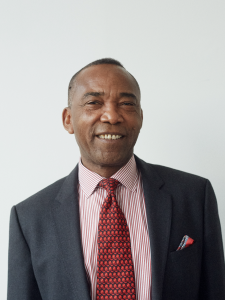LGBT claim and your asylum application
- 1 Asylum Claims for Lesbian, Gay, Bisexual and Transgender (LGBT) People
- 2 Can Asylum Seekers Work?
- 2.0.1 Get in touch for expert advice
- 3 How we can help?
- 4 What happens while your application is pending?
- 5 The legal framework
- 6 How does it work?
- 6.0.1 Get in touch for expert advice
- 7 What if the Home Office doesn’t believe me?
- 7.1 Article 3 of the European Convention on Human Rights
- 7.2 Examples of how we have helped people like you:
- 7.3 Articles Related to Human Rights
Asylum Claims for Lesbian, Gay, Bisexual and Transgender (LGBT) People
OVO Solicitors are experienced in asylum claims for LGBT clients who have a well-founded fear of persecution. There is still widespread discrimination against lesbian, gay, bisexual, transgender, and intersex people around the world, as well as against any other people who identify as queer or not cisgender and heterosexual.
Can Asylum Seekers Work?
Asylum seekers are not normally allowed to work whilst their application is pending. They are instead provided with accommodation and support to meet their essential needs. The Home Office may grant permission to work in line with their policy for those asylum seekers whose claim has been outstanding for more than 12 months, but those will only be allowed to work in restricted jobs on the shortage occupation list.
How we can help?
We represent individuals, both in asylum applications and appeals, who ask for asylum or make a Human Rights claim on the basis of homosexuality. They fear persecution as members of a particular social group and or ill-treatment in breach of Article 3 on account of their sexuality. Despite the fact that in the 1951 Refugee Convention there is no explicit recognition of persecution for reasons of sexual orientation or gender identity, the drafters of the convention used broad enough language to cover such instances, notably by recognising that people could be persecuted for membership of a particular social group.
What happens while your application is pending?
It should be noted that as an asylum seeker, you will be unable to work while your application is under consideration. You may be able to work if you were given permission as part of another form of leave prior to your asylum claim, or if you have waited for longer than 12 months to receive an initial decision. However, these opportunities are restricted to those on the shortage occupation list published by the Home Office, which generally consists of employment in the engineering or advanced medical industries. The Home Office claims that this is because there is a distinction between entering the UK for economic pursuits and entering for the sake of your safety. Asylum support is offered as a remedy, but the reality is that these barriers open vulnerable individuals to exploitation by unscrupulous employers an act as a deterrent for those seeking asylum.
The legal framework
The legal framework of every asylum application is Article 1(a)(ii) of the Geneva Convention. It states a refugee is a person, who, owing to a well-founded fear of being persecuted for reason of race, religion, nationality, membership of a particular social group or political opinion, is outside the country of his nationality and is unable or, owing to such fear, is unwilling to avail himself of the protection of that country. The question is whether the applicant would face a well-founded fear of persecution based on their sexuality or characteristic.
How does it work?
Refugee status in the UK lasts for 5 years, giving the right to work, study, and apply for benefits and housing. Dependants may also be able to gain these rights if they are close family members, and if they are abroad, they can go through the family reunification process.
For a Human Rights claim, the claim would be based on Article 8 ECHR (the right to family and private life) or Article 3 ECHR (the prohibition of torture and inhuman and degrading treatment).
You must come from a country where there is discrimination. Homosexuality does not need to be illegal in your country for you to make an asylum claim; the important point is that you can show a real risk of serious harm from the government, or other sections of the population, where the government cannot or will not protect you.
Get in touch for expert advice
What if the Home Office doesn’t believe me?
Proving you are gay in an interview is a challenging prospect, especially if you do not have evidence of your sexuality, perhaps because you are not outgoing.
Little to no data exists about how many LGBT people migrate due to anti-LGBT laws and customs. The Organisation for Refuge, Asylum and Migration (ORAM) have noted an increase in LGBT+ people seeking asylum, especially from Pakistan, Jamaica, Nigeria and Ghana.
Although the UK has taken steps to make the asylum process easier for LGBT applicants, they are still falling short. The UK Lesbian & Gay Immigration Group (UKLGIG) conducted a study into Home Office decisions in March 2015. They found that inappropriate questioning took place. On occasion, interviewees were asked about details of their sexual activity. An independent enquiry by the Independent Chief Inspector of Borders and Immigration found in October 2014 that 11% of LGB applicants were asked inappropriate questions. In the cases monitored by UKLGIG, applicants were asked very intimate questions, which was strange as the Home Office staff had clarified they did not want to ask questions that would require sexually explicit answers. Other examples of questions included questioning how the applicants came to realise they were gay, how they felt about members of the same sex in their early teens, and the details of dreams they had had involving members of the opposite sex. UKLGIG has noted how asking questions that embarrass the applicant can make it harder for the applicants to make their case during the interviews.
Vincent has seen a number of trends in the treatment of LGBT applicants to the Home Office. Applicants used to be told that they should simply be discreet and hide their sexuality. This approach has been rejected by the Supreme Court in 2010. The Home Office have also attempted to deny that LGBT people are persecuted in cases where the asylum seeker’s country of nationality has criminalised homosexuality but there is inconsistent application of this law. Thirdly, and more recently, the Home Office have looked less at the applicant’s sexual orientation and placed more weight on actual sexual activity.
Article 3 of the European Convention on Human Rights
Article 3 ECHR prohibits torture, inhuman and degrading treatment.
A recent case their home office had failed to take into account expert testimony about the treatment of gay migrants in Korea and that South Korean law barred the British partner from moving to South Korea, as South Korean law does not recognise same-sex relationships.

